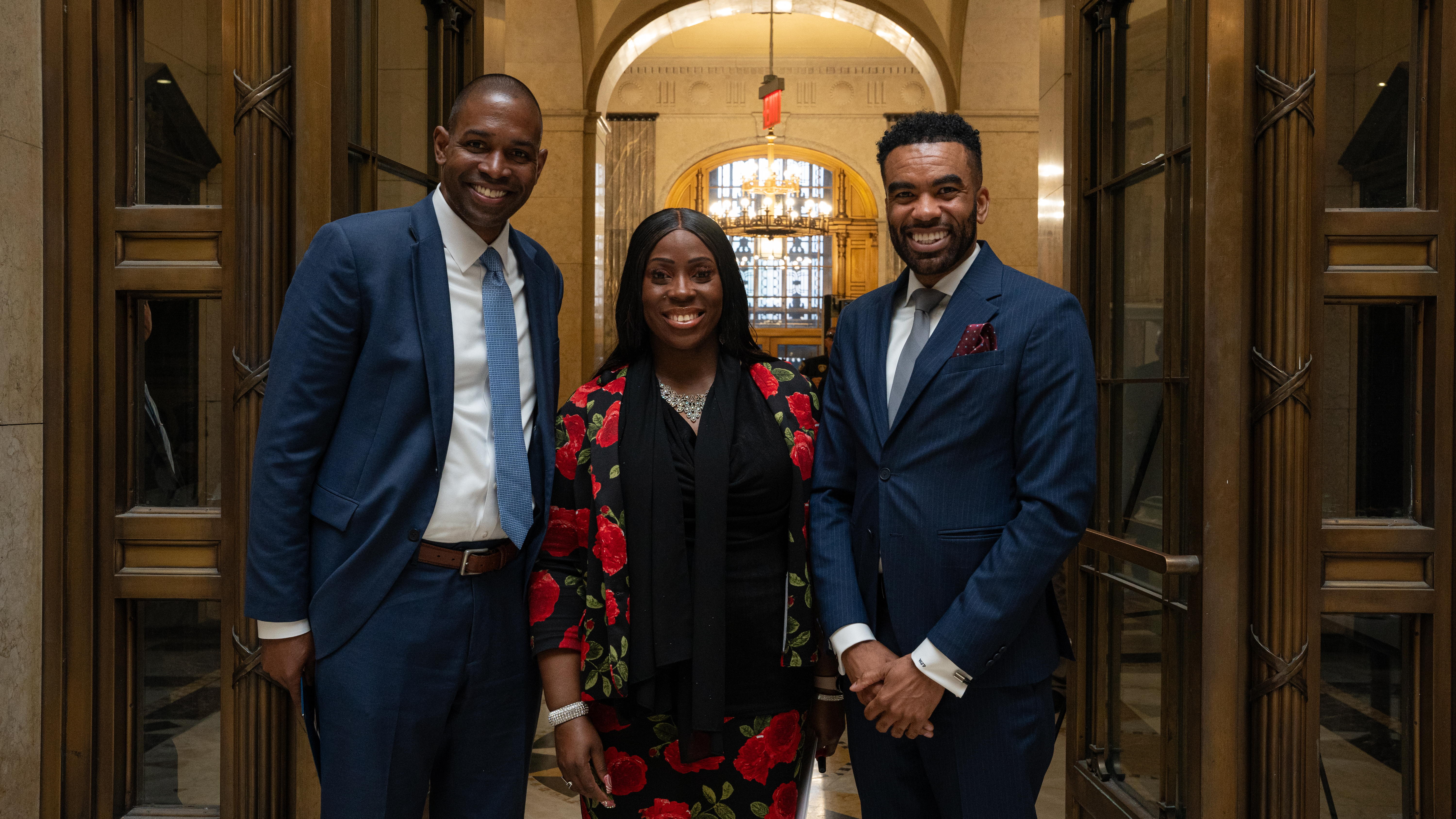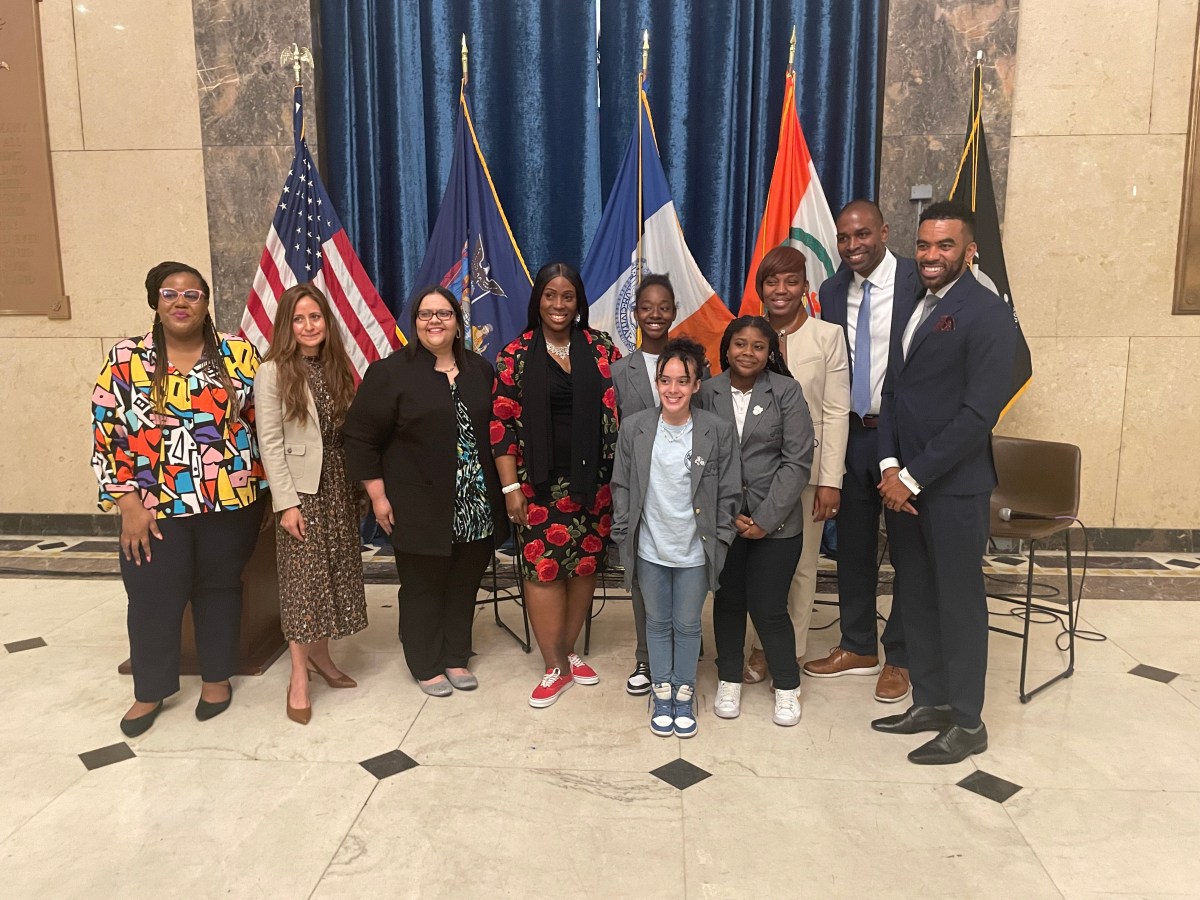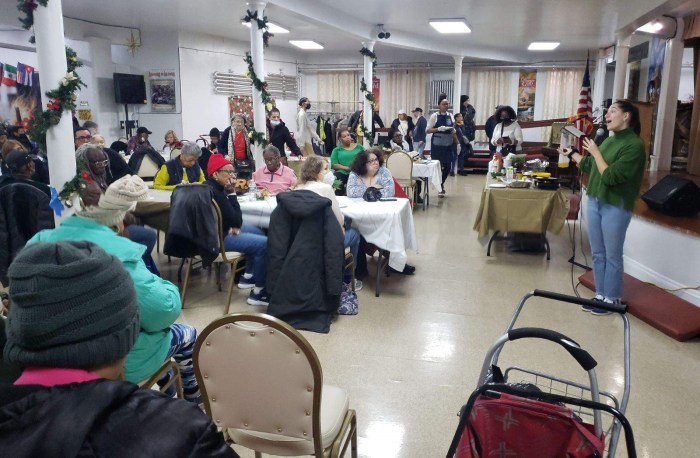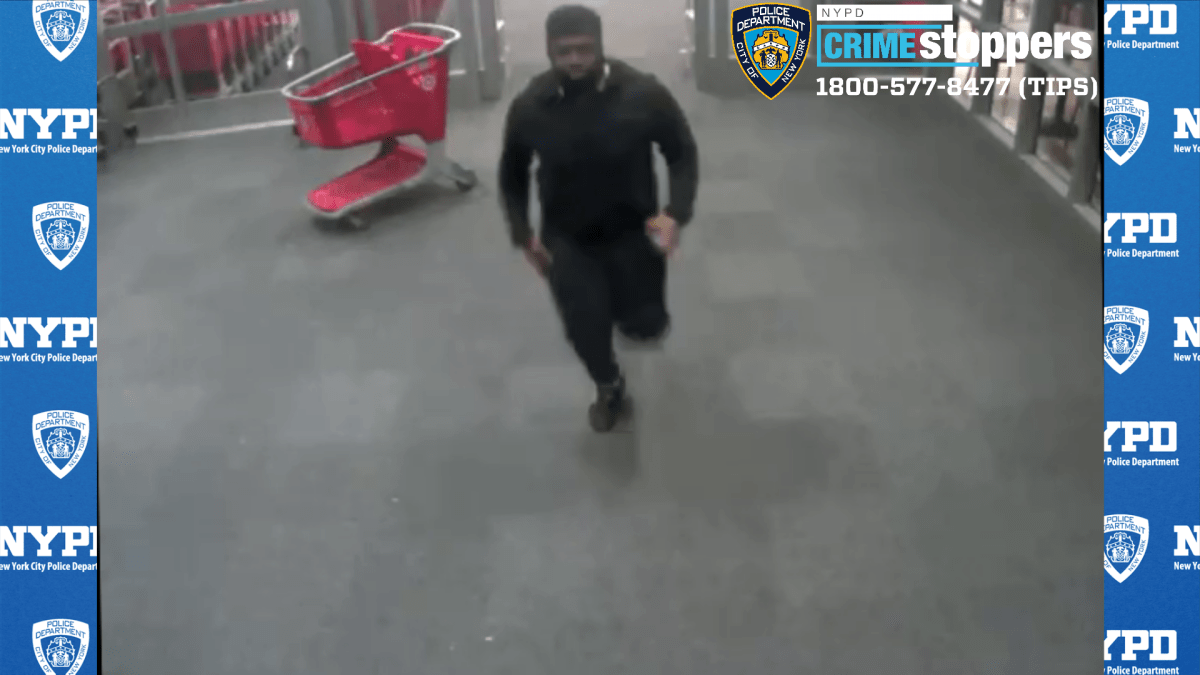Leaders from the borough’s various city and state positions gathered at Borough Hall on May 30 to discuss one the biggest topics in the Bronx: youth mental health.
Titled “The State of Mental Health for Bronx Youth,” the panel event was presented by Borough President Vanessa L. Gibson and the citywide nonprofit, Partnership with Children (PwC), which has trauma-informed counseling and arts therapy as part of its programming. The event was divided into two panels, each monitored by executives from PwC, to talk about the mental health stressors many young Bronx residents face and how to ease their stressors.
A recent report from Montefiore Medical Center revealed that 20% of Bronx youth, ages 5 to 17, have mental health issues.
“We must come up with real solutions in the Bronx,” Gibson said in her opening remarks. “This is a call to action and we can’t be reactive.”
According to the panelists, including Dr. Roshone Ault Lee, the principal of South Bronx Academy for Applied Media, social media was the main reason for the high rate of mental health issues. Even Lt. Gov. Antonio Delgado, who spoke at the start of the event, discussed cyberbullying and how social media platforms are designed to have addictive feeds to keep users — even young users — scrolling continuously on the platforms. He also talked about the loneliness epidemic, another issue fueling the mental health crisis.
“Children were forced to deal with that at a very young age,” Delgado said. “COVID exacerbated the epidemic and made children turn to social media.”
Bullying was another topic brought up by Borough President Gibson when she mentioned how a young student wrote a suicide note after being bullied at school. This, she explained, was an example of the many challenges to mental health, including trauma, gun violence, domestic violence and gender violence.
“We must tell kids who are bullied that they’re not alone and we shouldn’t act if a child acts out,” she said.

A big part of the panels was discussing how to act before a child acts out. The first panel comprised Dr. Audrey Erazo-Trivino, the Associate Commissioner Office of Prevention and Health Initiative of the New York State Office of Mental Health; and Carmen Villavicencio-Hein, the supervisor of School Social Workers at the New York City Department of Education. They talked about how school communities can be a safe space for children and a triangular support team between the school, the parent, and the child should be set up.
“It’s all about building relationships and connections,” said Villavicencio-Hein. “Go to their school and talk to the principal or social worker. Let’s be partners. Getting to know each other is key.”
Jackson also pointed out how sometimes teachers need help working with youths who are struggling with so much. She also encouraged the idea of schools creating wellness centers in their buildings.
The second panel featured Principal Lee and Cassi Wilkins, a parent of a student from Bronx Leadership Academy. They both discussed the impact social media is having on young people in the Bronx and how teaching emotional intelligence can be complicated.
“We need to teach our children empathy,” Principal Lee said. “But what does that sound like? Social media is all our kids know.”
Wilkins pointed out that children of this generation may likely misunderstand certain tones of voice.
“They have to know that when we speak abrasively to them,” Wilkins said. “We’re doing so to command respect.”
The principal encouraged school staff and other adults to talk to students and take an interest in their daily lives by asking them what is going on with their days.
The event wrapped up with a sense of encouragement and eagerness to get started on solving the Bronx’s mental health crisis among its youth. Even the Borough President Gibson was energized by the panels.
“Being a young adult in 2024 is no joke,” she said. “Encourage them to be honest, let them talk about anxiety and apprehension. Keep talking and pushing to have honest conversations with them. We’re not going to wait until the next tragedy before we act.”























